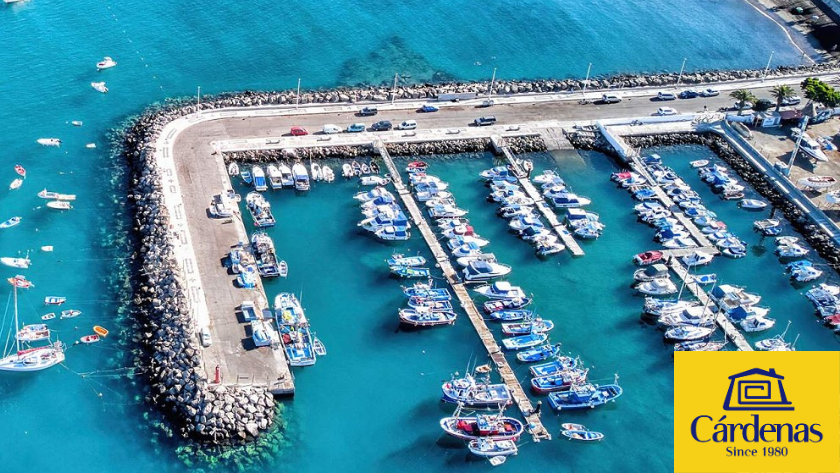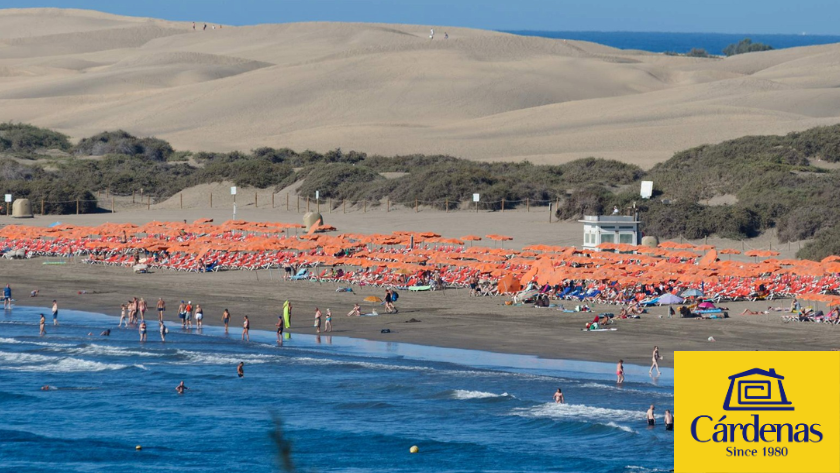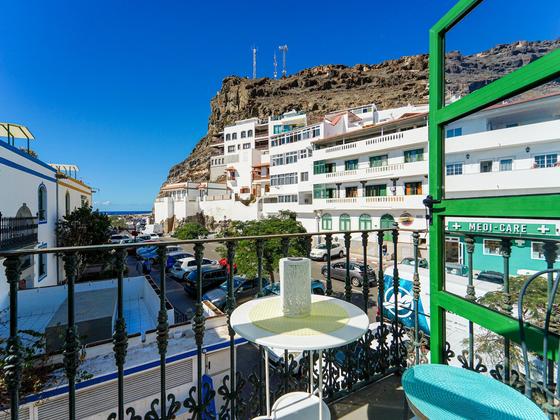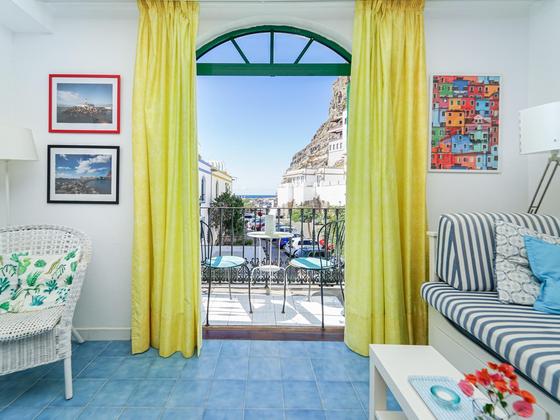What are the short term holiday rental rules in the Canary Islands?
Published in Buyer tips, Legal & Tax, News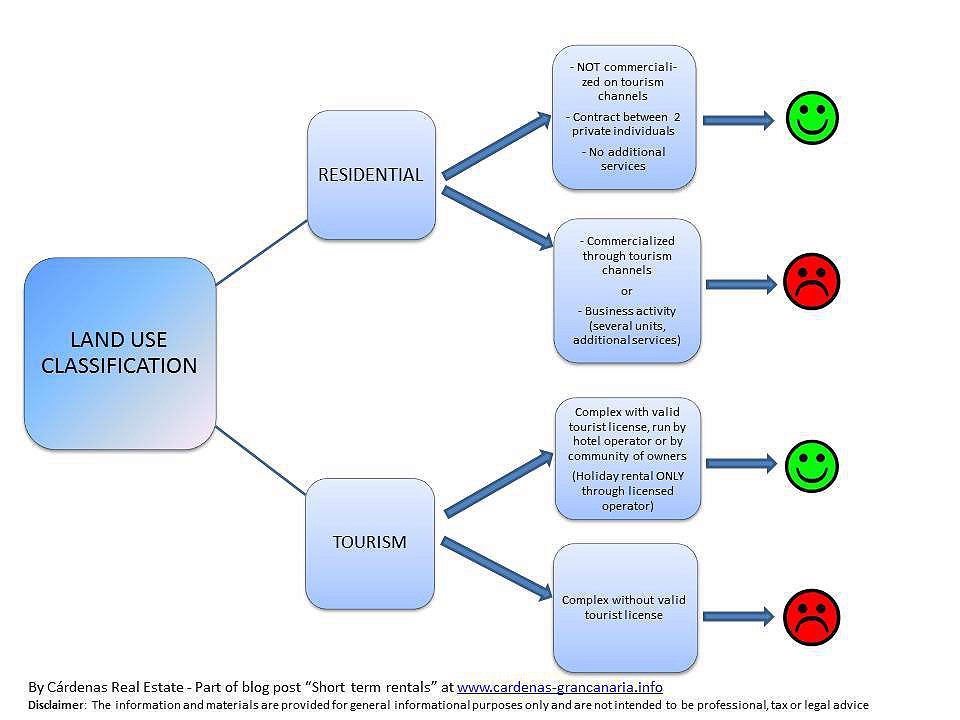
Short term rentals - annex to post
This topic generates a lot of debate and rumors in Gran Canaria and the Canary Islands: The situation is complex as it is covered by two different laws. Here’s the background and the situation as it currently stands. Two new regulations came in force in 2013, redefining and specifying some unclear aspects of the previous rules, namely: the Canarian Tourist Renovation and Modernization Act dated May 29th 2013 (Ley de Renovación y Modernización Turística de Canarias), and the modification of the Tenancy Act, with measures to flexibilize and promote home rentals, dated 4th June 2013, which we wrote about in our post “Most relevant aspects of the new Tenancy Act in Gran Canaria”.
To establish the regulatory frame that applies in each case, the first thing we need to analyze is the land use classification of the land where the property is located, according to the municipal planning rules. The land can be classified as: 1) Residential use 2) Tourism use We will analyze both cases separately:
1) Residential land use classification:
A property built on land classified for residential use, can be offered by the owner as “season letting” according to the Tenancy Act, as long as it is NOT “commercialized and promoted through tourism channels”, because otherwise it would be subject to the specific tourism sectoral regulation, which in the case of the Canary Islands is mainly the Canarian Tourism Act (Ley 7/1995, de 6 de abril, de Ordenación del Turismo de Canarias), and not to the Tenancy Act.
Further, this kind of letting should not be a “business or commercial activity”, which could be assumed if the same person has several apartments/ units on offer, or if additional services (cleaning, catering, etc.) are offered. The contract should clearly be between 2 private parties, incorporating elements of the Tenancy Act and excluding any type of services. So if you advertise the letting on “tourism channels” (caution as they are not clearly defined in the law), or if it can be considered a business or commercial activity, the applicable regulation would be the Canarian Tourism Act, which leaves no room for individual property owners to undertake private holiday lettings, so the rental would not be legal.
However, there are some social movements pushing for regulations that allow private holiday lettings e.g. http://www.change.org/es/peticiones/gobierno-de-canarias-regule-ya-los-alquileres-vacacionales and regulatory changes are possible in the future.
2) Tourism land use classification:
Although there has traditionally been a wide tolerance of residential use (for season residence, or even permanent residence) of properties located on land classified for tourism use, the new Canarian Tourist Renovation and Modernization Act dated May 2013 has come to specify that these properties can be used exclusively for tourism purposes and have to operate as tourism establishment with a valid license.
Residential use is expressly prohibited. According to the Canarian Tourism Act, a tourism establishment can be operated by one single company/hotel operator who holds the tourism license for that building, and the operator is obliged to have an agreement to operate more than 50%* of the units of that building. The remaining units can be used by their owners for their own use for holiday purposes but not for renting them out, neither for short term (because this can only be carried out by the licensed hotel operator) nor for long term, because the regulatory changes of May 2013 have redefined the use of these properties and excluded their use for residential purposes. In the past many complexes located on tourism classified land were purchased in units by individual owners, and in many cases they did not arrange a satisfactory agreement with a hotel operator, for different reasons (lack of profitability, desire to make an own use of their apartment…), and thus decided to stop the tourism activity and deregistered their tourism license at the competent authorities.
This is the case of innumerable complexes in areas like Puerto Rico, Playa del Cura, Maspalomas, Playa del Inglés. With the new regulation approved in May, this possibility is limited : Complexes with a valid tourism license should continue to operate as tourism establishments and fulfill the corresponding legal requirements. It is not possible or at least advisable to deregister a tourism license. One possible solution for complexes whose owners can’t reach a satisfactory agreement with an external private company is to run the tourism establishment and have the license on the name of the Community of owners, which is expressly foreseen in the law.
With a license the Community of Owners could run the complex with more flexibility regarding periods for own use and renting out. They would not need contracts with touroperators, but the owners could use the apartments for holiday purposes and also rent them out, as long as this is done under the umbrella of the official establishment, and fulfilling all legal requirements. Some of these requirements are: - Reception - Registry of users of the complex, and monthly statistics of users to be sent to the authorities - List of maximum accommodation prices applicable in the establishment - Availability of customer claim forms - Periodical technical inspections of the building to assure the tourism standards are maintained For complexes that deregistered as tourism establishments in the past, it can be difficult to reobtain the tourism license as they may not meet the currently applicable standards. This needs to be studied for every particular case.
The regulation approved in May 2013 establishes that the town planning authorities should analyze every area in detail, identifying areas with tourist buildings that are being used for residential purposes, and specializing or reclassifying their uses accordingly. While the actual use of these buildings might be residential, as long as the land is not reclassified for residential use, any kind of short term rental in such buildings should be avoided, because not having a legal residential use, they would not be covered by the Tenancy Act and thus be in breach of the Canarian Tourism Act. *the 50% applies for all establishments authorized before March 1999, for those authorized later, 100% of the units need to be under the tourism operation.
Disclaimer:
The information and materials on this blog are provided for general informational purposes only and are not intended to be profesional, tax or legal advice. The law changes frequently and is subject to interpretation. Being general in nature, the information and materials provided may not apply to any specific factual and/or legal set of circumstances. No client relationship is formed nor should any such relationship be implied. Nothing on this blog is intended to substitute for the advice of a profesional, especially in tax and legal matters.


